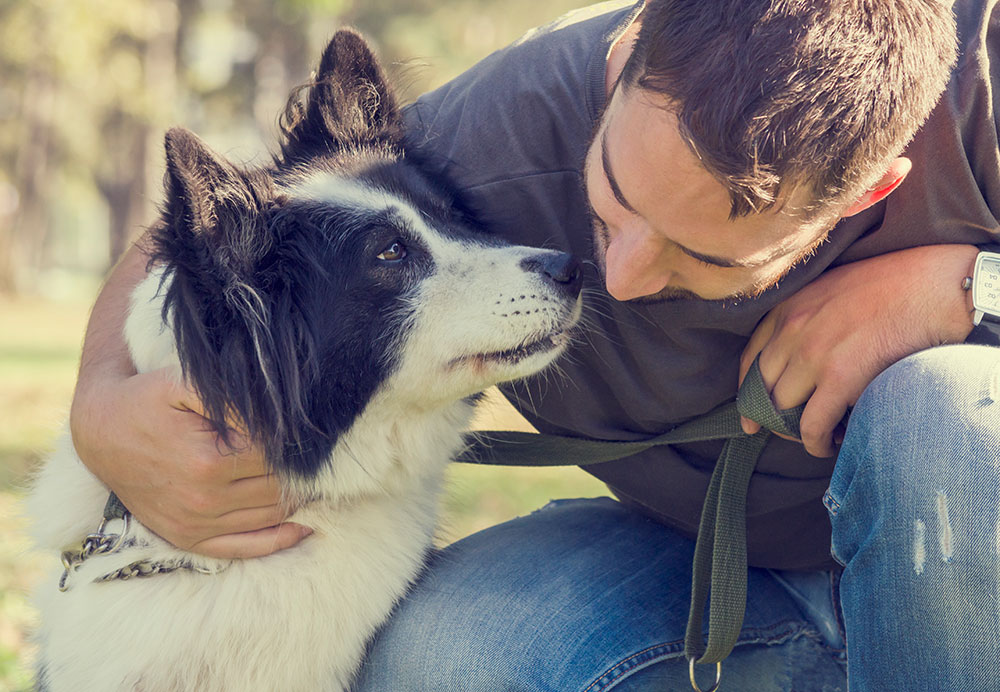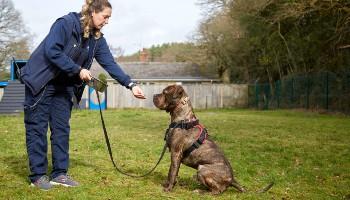Transform Your Dog's Behavior with Proven Dog Training Tips
Transform Your Dog's Behavior with Proven Dog Training Tips
Blog Article
The Ultimate Overview to Pet Dog Training: Change Your Family pet's Habits
Effective pet dog training is important for cultivating a harmonious connection between pet dogs and their owners. This overview not just aims to outfit you with the necessary devices to change your canine's actions but likewise welcomes you to explore exactly how these fundamental concepts can lead to a much deeper link with your pet.
Recognizing Dog Habits
Comprehending pet behavior is important for reliable training and a harmonious relationship between canines and their proprietors. A pet dog's actions is affected by a mix of genes, setting, and experiences. Dog training. Recognizing these factors allows owners to tailor their training approaches to satisfy the individual needs of their pets
Canines communicate largely via body movement, articulations, and face expressions. A wagging tail can indicate exhilaration or joy, while a tucked tail might indicate concern or entry. Observing these signs makes it possible for owners to respond appropriately, reinforcing favorable actions and attending to unfavorable ones properly.
In addition, recognizing the social structure of pets can provide insights into their habits. Pet dogs are pack pets, and they flourish in a structured atmosphere. Establishing clear boundaries and regular regulations can prevent complication and advertise a complacency.
In addition, identifying the natural instincts of pets, such as need to dig or chase after, is important. These reactions can be rerouted with appropriate outlets, such as play or workout. By comprehensively understanding these behavioral elements, owners can cultivate a positive training experience, ultimately resulting in a obedient and well-adjusted canine companion.
Important Training Strategies
Effective dog training depends on a range of necessary strategies that can dramatically boost the knowing procedure for both the pet and the owner. One basic technique is favorable support, which involves rewarding desirable behaviors with deals with, praise, or playtime. This technique urges dogs to duplicate the behaviors that bring about favorable end results, cultivating a relying on partnership between the pet dog and owner.
One more trick method is consistency in assumptions and commands. Utilizing the same spoken hints and hand signals helps the pet dog comprehend what is required, minimizing confusion and promoting quicker discovering. In addition, developing clear limits and policies is critical for effective interaction.
Socializing is additionally a necessary component of training. Subjecting dogs to various settings, individuals, and other pets assists them create proper social skills and lowers anxiety in unknown circumstances.
Last but not least, perseverance and timing are essential. Educating sessions must be regular however brief, ensuring that the pet dog continues to be engaged and responsive. By utilizing these important strategies, owners can create a structured and positive training experience that advertises etiquette and strengthens the bond with their canine buddies.
Producing a Training Set Up
Exactly how can a well-structured training routine improve a pet dog's knowing experience? A training routine provides uniformity, ensuring that dogs receive routine, focused guideline. This predictability helps canines recognize what is expected of them, reinforcing their discovering and enabling far better retention of habits and commands.
When creating a training schedule, it is important to consider the dog's age, breed, and private personality. Youthful pups may profit from shorter, a lot more regular sessions, while grown-up pets may thrive with longer, less frequent training durations. Integrating a selection of tasks can also keep the sessions engaging, avoiding monotony and promoting enthusiasm for learning.
In addition, scheduling training sessions at details times of the day can aid solidify a routine. As an example, combining training with day-to-day strolls or playtime can create a favorable association with discovering. It is likewise important to include time for reinforcement, such as deals with or appreciation, to reward wanted actions promptly.
Lastly, flexibility is key. While consistency is vital, being adaptable to the dog's state of mind or power degree can boost their understanding experience. A well-crafted training routine eventually lays the structure for efficient interaction and a stronger bond in between the dog and proprietor.
Usual Educating Obstacles
In spite of having a well-structured training routine, pet proprietors commonly come across numerous challenges throughout the training procedure. One usual problem is disparity in signs and commands. When several relative make use of different terms or tones, a dog might end up being confused, hindering its ability to learn efficiently.
An additional frequent challenge is disturbance. Dog training. Pets are normally interested creatures, and outside stimuli such as other animals, sounds, or people can divert their interest throughout training sessions. This calls for owners to create a regulated atmosphere or progressively present disturbances to enhance focus
Additionally, varying power levels can influence training outcomes. High-energy pet dogs may have a hard time to settle down and concentrate, while much more laid-back types might need added motivation to involve. Customizing the training approach to fit the specific pet's personality is important for success.

Structure a Solid Bond
A strong bond in between a dog and its proprietor is vital for effective training and overall well-being. Dog training. This relationship fosters trust, which is vital for reliable communication during the training process. When a pet really important source feels safe and linked to its proprietor, it is most likely to respond favorably to commands and hints
To develop this bond, consistency is key. Establishing a regimen site here that includes normal feeding, workout, and training sessions assists develop a sense of security. In addition, favorable support techniques, such as deals with, appreciation, and play, reinforce desired behaviors while strengthening the emotional connection.
Socializing is an additional vital aspect of bond-building. Revealing your dog to various atmospheres, individuals, and other pets helps them really feel a lot more positive and comfortable, boosting the bond with their proprietor. Engaging in activities together, such as walking, playing bring, or taking part in obedience training, advertises synergy and mutual satisfaction.
Conclusion

Understanding canine actions is necessary for reliable training and an unified partnership between dogs and their proprietors.Effective dog training depends on a variety of crucial methods that can considerably enhance website here the knowing process for both the pet dog and the proprietor.In spite of having a well-structured training schedule, dog proprietors often run into various challenges during the training process.In conclusion, efficient pet dog training counts on a detailed understanding of canine behavior, the application of important techniques, and the establishment of an organized training routine. By emphasizing positive reinforcement and uniformity, canine owners can significantly improve their family pets' actions, ultimately ensuring a harmonious connection and promoting the health of both the canine and its environment.
Report this page